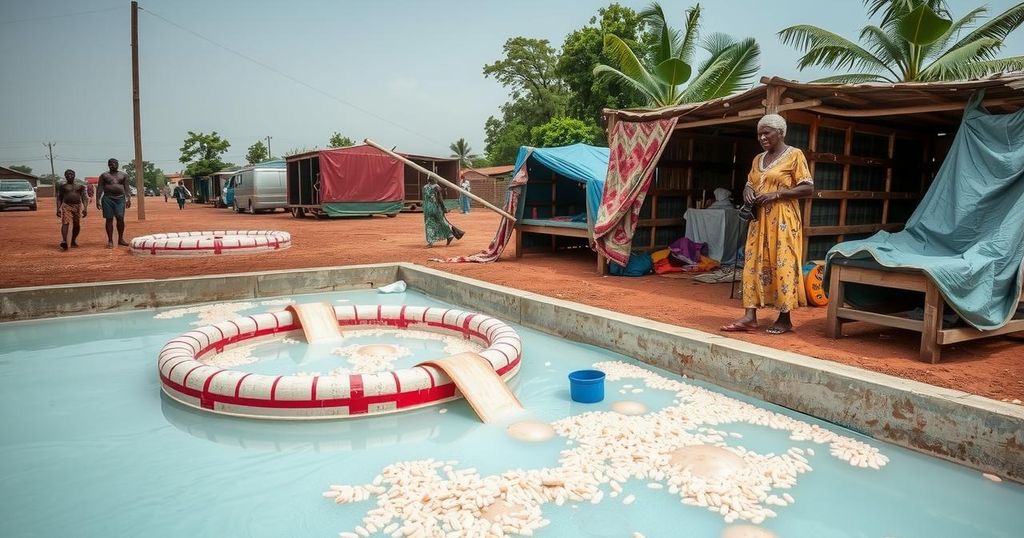Cholera Outbreak in South Sudan Results in Nearly 60 Deaths and 6,000 Cases

A cholera outbreak in South Sudan has claimed nearly 60 lives since October 28, with approximately 6,000 reported cases. The outbreak is concentrated in IDP camps and affects refugees fleeing Sudan. Vaccination efforts have been initiated by government and UN agencies to combat the crisis, focusing on hygiene and healthcare access to mitigate spread.
In South Sudan, a cholera outbreak has resulted in nearly 60 fatalities since its onset on October 28, as reported by Minister of Information and Communication, Michael Makuei Lueth. As of the latest updates, there have been approximately 6,000 recorded cholera cases across the nation. The outbreak predominantly affects internally displaced persons (IDP) camps in Juba, Rubkona County, Aweil, and refugee camps in northern regions, particularly Renk.
The South Sudanese government, in collaboration with UN agencies, began administering vaccinations in response to the urgent health crisis, prompted by a total of 2,184 cases and 31 deaths previously indicated. The ongoing spread has particularly impacted refugees fleeing from Sudan, highlighting the need for continued vaccine efforts. Additionally, Minister Lueth emphasized vital health recommendations, including maintaining cleanliness and consuming well-cooked food to mitigate cholera spread.
The joint statement from the South Sudan Ministry of Health and UN agencies underscores the outbreak’s severe impact on vulnerable populations, including children and the elderly, exacerbated by overcrowding, limited access to clean water, and inadequate sanitation in transit centers and camps. Initial cholera cases trace back to Sudan, where an outbreak has already affected over 40,000 individuals. As 880,000 people have fled Sudan since April 2023, many have sought refuge in South Sudan, increasing the demand for essential health services.
Cholera is an acute diarrheal illness caused by infection of the intestine with Vibrio cholerae bacteria, often resulting in severe dehydration and death if untreated. South Sudan has previously faced cholera outbreaks, worsened by humanitarian crises, civil conflict, and inadequate public health infrastructure. The country currently houses many refugees from Sudan, where another cholera outbreak is ongoing, which has intensified health challenges in the region. Due to limited access to clean water and sanitation facilities, susceptibility to cholera remains high, particularly among displaced populations.
The cholera outbreak in South Sudan represents a critical public health emergency, exacerbated by an influx of refugees and inadequate sanitation. The government’s response, including vaccination initiatives and public health messaging, is vital to curbing the spread of the disease. Ensuring clean water access and promoting hygiene practices are essential components of the ongoing efforts to protect vulnerable populations. Without immediate and sustained interventions, the outbreak could have dire consequences for both refugees and residents alike.
Original Source: news.az







